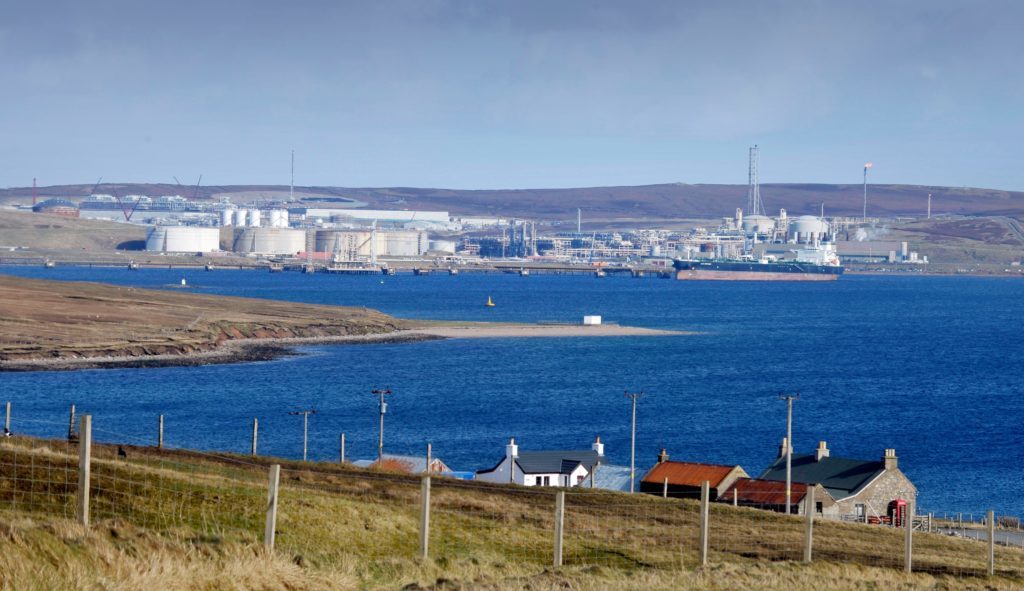
EnQuest bosses insisted yesterday they had a “compelling” case for the Sullom Voe oil terminal in Shetland, despite fears the facility may lose a key customer.
Chief executive Amjad Bseisu and North Sea managing director Bob Davenport said they were committed to transforming the terminal to make it more competitive.
The site could see “modest” investment to meet demand, they said, adding that ongoing discussions with BP and is partners in the giant Clair field could help to make sure oil flows through the facility for years to come.
They were speaking after London-listed EnQuest announced a doubling of first-half profits, driven by a 27% jump in net production.
Their comments also came just a day after BP North Sea boss Ariel Flores said the energy giant was weighing up whether to keep exporting oil to Sullom Voe from Clair.
EnQuest, which took over operatorship of the terminal from BP in December 2017, said in July that it would have to lay off 80 people by the end of the year in an effort to keep the facility competitive.
Mr Flores said Sullom Voe was still an option for BP and its partners on Clair, but investment in simplifying the terminal was needed quickly. Other technical and commercial export alternatives were being considered, he added.
Yesterday Mr Davenport said: “We’ve already made a commitment to the effect that we are actively working to transform Sullom Voe.
“It is important we do that to remain competitive and keep the oil flowing and economical rates for the long term.
“Discussions taking place now could see the terminal operating through to the 2050s.
“We are right-sizing the service we are able to offer from the terminal and making sure it is operating competitively.”
The company managed to reduce operating costs at Sullom Voe by 25% to
£150 million last year.
But in July it said it needed to lower the bill further, as well as make changes to employees’ terms and conditions.
EnQuest announced a doubling of half-year profits and said its chairman, Jock Lennox, would step down at the end of the month.
The company – active in the North Sea and Malaysia – reported £31.2 million of pre-tax profits for the first six months of 2019, up from £15.4m a year earlier. Revenue and other operating income for the latest period came in at around £658m, up from £444.4m previously.
Group net production was up by 27%, averaging 68,548 barrels of oil equivalent (boe) per day during the first half of 2019.
Former BG Group chief operating officer Martin Houston will take on the chairman’s role from September 30.
The firm also gave an update on its Worcester two-well drilling programme for its North Sea Kraken development, planned for 2020.
Chief executive Amjad Bseisu said: “The group has delivered a strong performance in the first half of 2019.
“Production was towards the top end of our full year guidance range and we continue to control our operating expenditures, with unit opex of $20/boe in the period. We have generated strong cash flows in the period and significantly reduced debt.”
He added: We remain confident in achieving our 2019 production guidance of 63,000 to 70,000 boepd (boe per day).
“Our two pipeline projects have been completed ahead of schedule and budget, and our annual maintenance programme is expected to be concluded around the end of the third quarter.
“Drilling is under way in Malaysia, with our two-well campaign, and drilling at Magnus (in the UK North Sea) is due to start in the fourth quarter.”
Kraken’s first-half output averaged 32,776 boepd.
Mr Bseisu said net debt position was improving, reducing by about £110m to £1.32 billion between the end of last year and June 30.
Recommended for you
